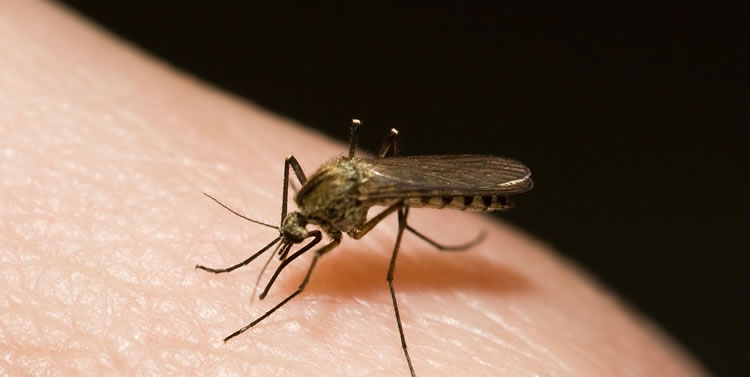Invasive Aedes aegypti Mosquitoes Detected in Western Riverside County
Corona, CA – Northwest Mosquito and Vector Control District has detected invasive Aedes aegypti or yellow fever mosquitoes in Western Riverside County. This species was recently found on July 28, 2017 in the City of Riverside.
Aedes aegypti is not native to California. It is a small black and white day-biting mosquito that prefers to feed on humans. This mosquito is capable of transmitting several viruses, including Zika virus, yellow fever, dengue and chikungunya. There are no reports of these diseases being transmitted locally by this mosquito; however, there is potential for them to be introduced by infected international travelers. In the presence of a large population of Aedes aegyptimosquitoes, a sick returned traveler can become a source leading to local transmission of disease. In this age of global commerce, Aedes aegypti has found several paths into California. It has been detected in 12 counties and 107 cities throughout the state.
View the California Department of Public Health map at:
https://www.cdph.ca.gov/Programs/CID/DCDC/CDPH%20Document%20Library/AedesDistributionMap.pdf
Northwest Mosquito and Vector Control District will be conducting intensive surveillance in areas surrounding the point of discovery to assess its distribution. These efforts will include door-to-door inspection of residential properties for these mosquitoes and the standing water habitats where their larvae can develop. The District will take appropriate measures to eliminate mosquitoes and mosquito larval sources as necessary.
The Aedes aegypti mosquito is different from native California mosquitoes. It lays its eggs just above the water surface in small containers such as flower pots, plant saucers, pet bowls, bottles, and bird baths. As these mosquitoes can breed in amounts of water as small as a bottle cap, residents are reminded to survey their property and immediately eliminate all standing water.
Residents can reduce the chances of being bitten by Aedes aegypti or other mosquitoes by taking the following precautions:
- Apply insect repellents that contain DEET, picaridin, oil of lemon eucalyptus or IR 3535 and follow label instructions.
- Make sure that doors and windows have tight‐fitting screens to keep out mosquitoes and repair or replace screens with tears or holes.
- Eliminate standing water and containers that can hold water from around the home.
- Avoid outdoor activities during dawn and dusk hours when possible.
Report neglected swimming pools and standing water sources by calling Northwest Mosquito and Vector Control District at (951)340-9792.
Residents experiencing mosquito bites during the day or unusual mosquito activity should report them to the Northwest Mosquito and Vector Control District at (951)340-9792 or by visiting www.northwestmvcd.org.

